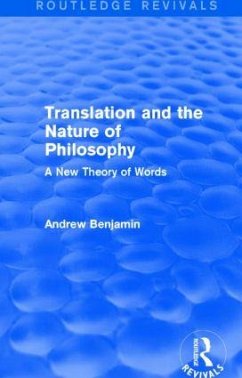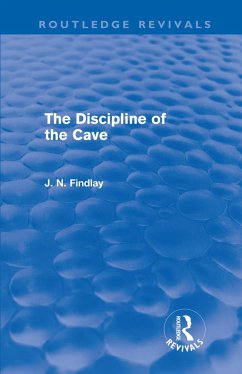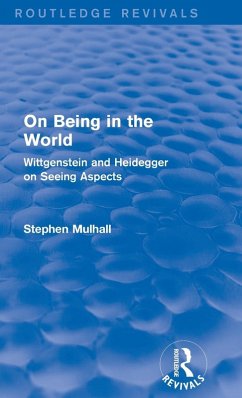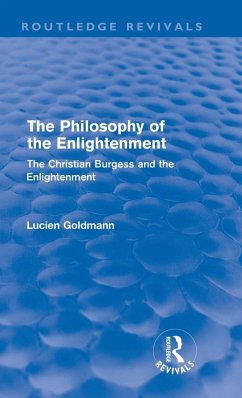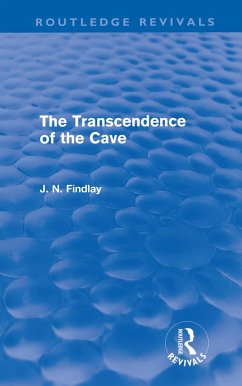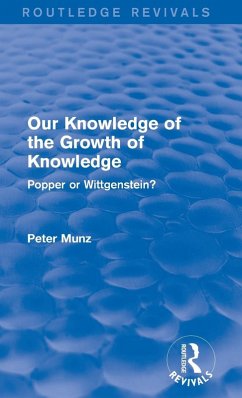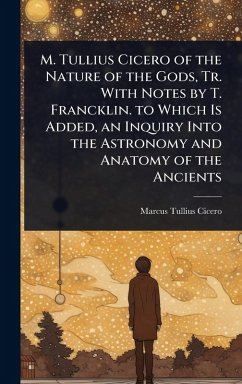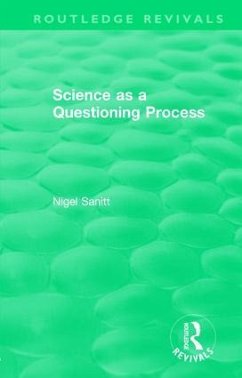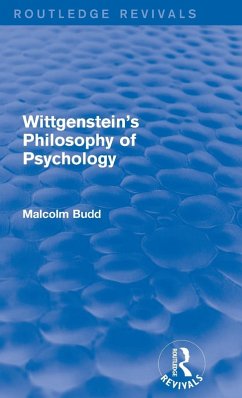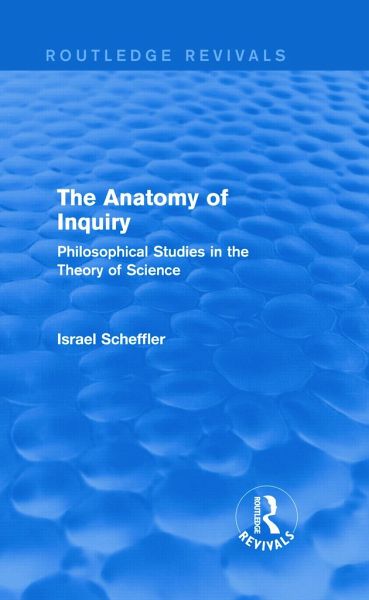
The Anatomy of Inquiry (Routledge Revivals)
Philosophical Studies in the Theory of Science

PAYBACK Punkte
70 °P sammeln!
First published in 1963, this title considers the philosophical problems encountered when attempting to provide a clear and general explanation of scientific principles, and the basic confrontation between such principles and experience. Beginning with a detailed introduction that considers various approaches to the philosophy and theory of science, Israel Scheffler then divides his study into three key sections - Explanation, Significance and Confirmation - that explore how these complex issues involved have been dealt with in contemporary research. This title, by one of America's leading phi...
First published in 1963, this title considers the philosophical problems encountered when attempting to provide a clear and general explanation of scientific principles, and the basic confrontation between such principles and experience. Beginning with a detailed introduction that considers various approaches to the philosophy and theory of science, Israel Scheffler then divides his study into three key sections - Explanation, Significance and Confirmation - that explore how these complex issues involved have been dealt with in contemporary research. This title, by one of America's leading philosophers, will provide a valuable analysis of the theory and problems surrounding the Philosophy of Science.





